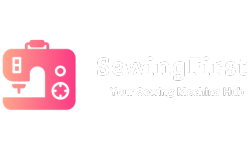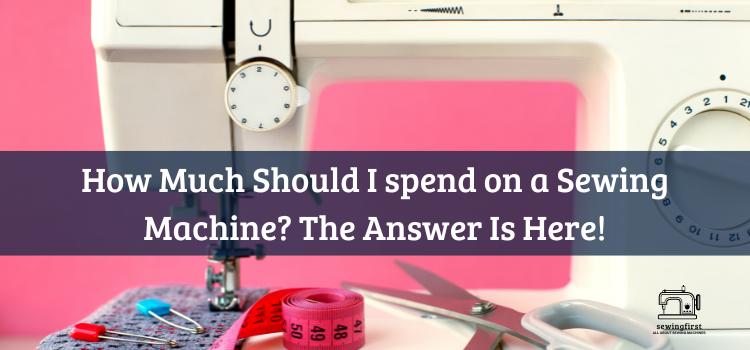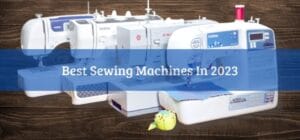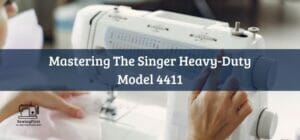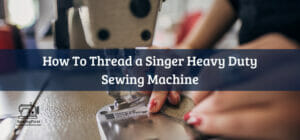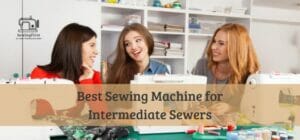Are you looking to purchase a sewing machine but aren’t sure how much you should spend?
Buying a new sewing machine can be an intimidating experience, especially if this will be your first time purchasing one. With such a wide variety of machines available, selecting what is right for you can feel like a daunting task.
In this article, we’ll explore how much you should spend on a sewing machine as well as what to look for in terms of features and quality. My goal is to help make the selection process easier so that you can find the perfect machine for your needs.
Related Topic: What Are Some Features of a More Advanced Sewing Machine? Sew Stress-Free!
Table of Contents
ToggleDefinition of Sewing Machine
A sewing machine is a device used to stitch fabric and other materials together with thread. It is an incredibly useful tool for anyone who wants to create clothing, quilts, or any other type of fabric-based project. Sewing machines come in a variety of sizes and styles, ranging from simple hand-cranked models to complex computerized machines.
Factors to Consider When Choosing the Sewing Machine
1. Budget
Before you start shopping for a sewing machine, it’s important to determine your budget. Sewing machines can range in price from under $100 to over $1000, so it’s important to decide how much you’re willing to spend before you start looking.
2. Features
Different sewing machines come with different features, so it’s important to consider what type of projects you’ll be doing and what features you’ll need. For example, if you plan on quilting, you’ll want to look for a machine with an extended throat space and a walking foot.
Basic Features
Basic features to look for in a sewing machine include adjustable stitch length and width, reverse stitching, and an automatic needle threader. These features are essential for any type of sewing project, so make sure the machine you choose has them.
Advanced Features
For more advanced projects, you may want to consider a machine with additional features such as an automatic buttonhole maker, embroidery capabilities, and a quilting foot. These features can make your sewing projects much easier and help you create professional-looking results.
3. Quality
When it comes to sewing machines, quality is key. Look for machines that are made from durable materials and have good reviews from other users. It’s also important to make sure the machine is covered by a warranty in case something goes wrong.
Quality of Construction and Materials Used
The quality of construction and materials used in a sewing machine are important factors to consider when making your purchase. Look for machines that are made from durable materials such as metal or plastic, and make sure the parts are well-constructed and fit together properly.
Additionally, look for machines that have good reviews from other users so you can be sure you’re getting a quality product.
4. Brand
While it’s important to consider the features and quality of a sewing machine, it’s also important to consider the brand. Different brands offer different levels of quality and customer service, so make sure you do your research before making a purchase.
Brand Reputation
When looking at different brands, it’s important to consider their reputation. Look for brands that have a good track record of providing quality products and customer service. Additionally, look for reviews from other users to get an idea of how the brand’s machines perform in real-world situations.
5. Service
Once you’ve purchased a sewing machine, it’s important to make sure you have access to good service and support. Look for brands that offer warranties and customer service so you can be sure your machine is covered in case something goes wrong. Additionally, look for local repair shops or online tutorials so you can get help if needed.
Accessibility of Service and Support
When looking for a sewing machine, it’s important to make sure you have access to good service and support. Look for brands that offer warranties and customer service so you can be sure your machine is covered in case something goes wrong. Additionally, look for local repair shops or online tutorials so you can get help if needed.
Overview of the Selection Process
Once you’ve determined your budget and identified the features and quality you’re looking for, it’s time to start shopping. Compare different models and read reviews from other users to get an idea of which machines are best suited for your needs. Once you’ve narrowed down your choices, take the time to test out each machine in person before making a final decision.
Finally, don’t forget to factor in the cost of accessories such as extra needles, bobbins, and thread. These items can add up quickly, so it’s important to budget for them when deciding how much you should spend on a sewing machine. With a little research and patience, you’ll be able to find the perfect machine for your needs at a price that fits your budget.
Types of Sewing Machines
There are many different types of sewing machines available on the market today. Depending on your needs, you can choose from mechanical, electronic, or computerized models. Mechanical machines are the most basic and typically require manual operation to sew.
Electronic machines offer more features such as automatic threading and adjustable stitch length and width. Computerized models are the most advanced and feature a wide range of functions including embroidery, quilting, and monogramming. No matter which type of machine you choose, make sure it meets your needs and budget.
Mechanical Sewing Machines
Mechanical sewing machines are the most basic type of machine and typically require manual operation to sew. These machines are usually more affordable than other types, making them a great option for those on a budget.
They also tend to be more durable and reliable than electronic or computerized models. Mechanical machines typically feature adjustable stitch length and width, as well as a reverse stitch function for added convenience.
Additionally, they are usually compatible with a variety of presser feet and accessories, allowing you to customize your machine for different projects.
Famous Mechanical Sewing Machine Brands
Singer
Singer is one of the most well-known brands in the sewing machine industry. Their machines are known for their durability and reliability, making them a great choice for those looking for a long-term investment.
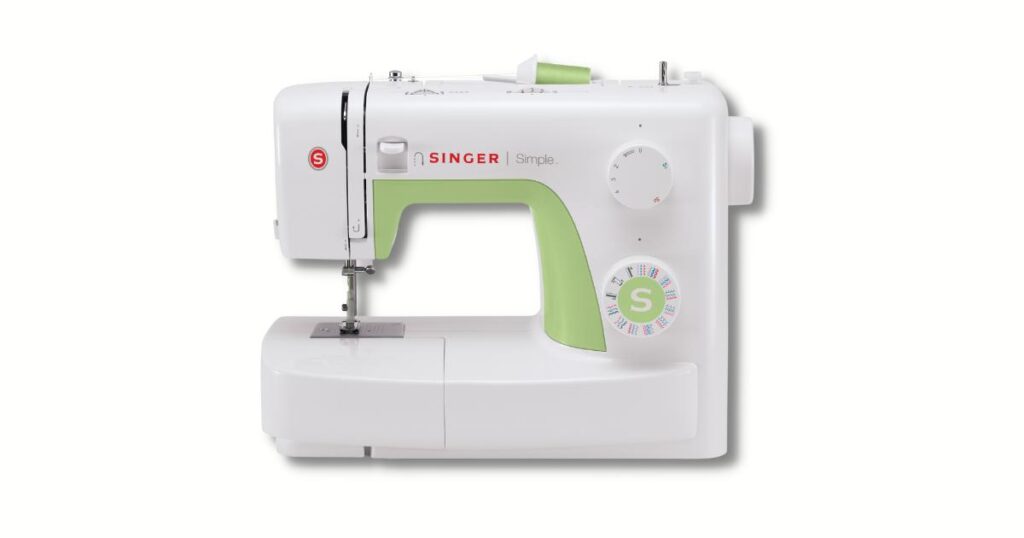
Janome
Janome offers a wide range of mechanical sewing machines that are perfect for beginners and experienced sewers alike. Their machines feature adjustable stitch length and width, as well as a reverse stitch function for added convenience.
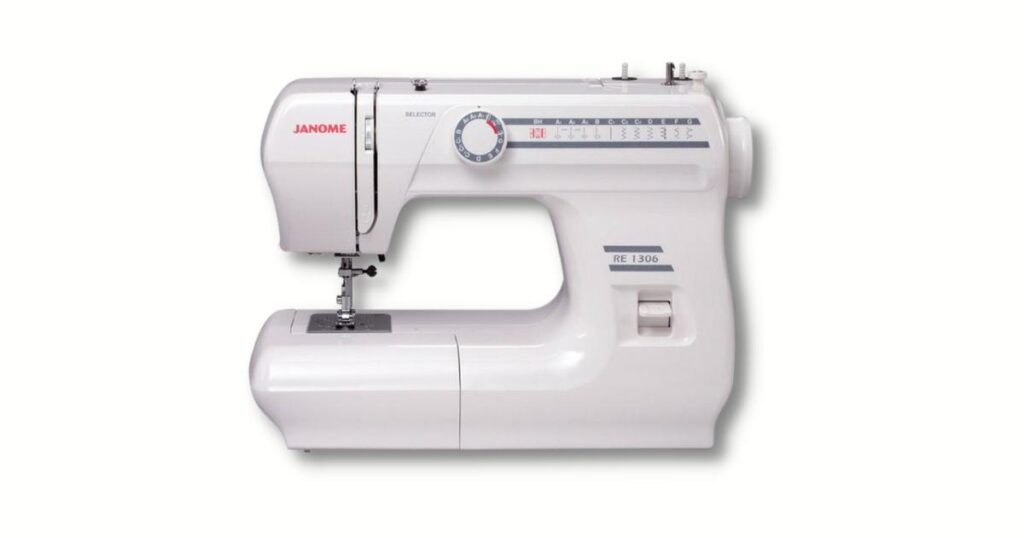
Brother
Brother is another popular brand that offers a variety of mechanical sewing machines. Their machines are known for their affordability and ease of use, making them ideal for those just starting out with sewing.
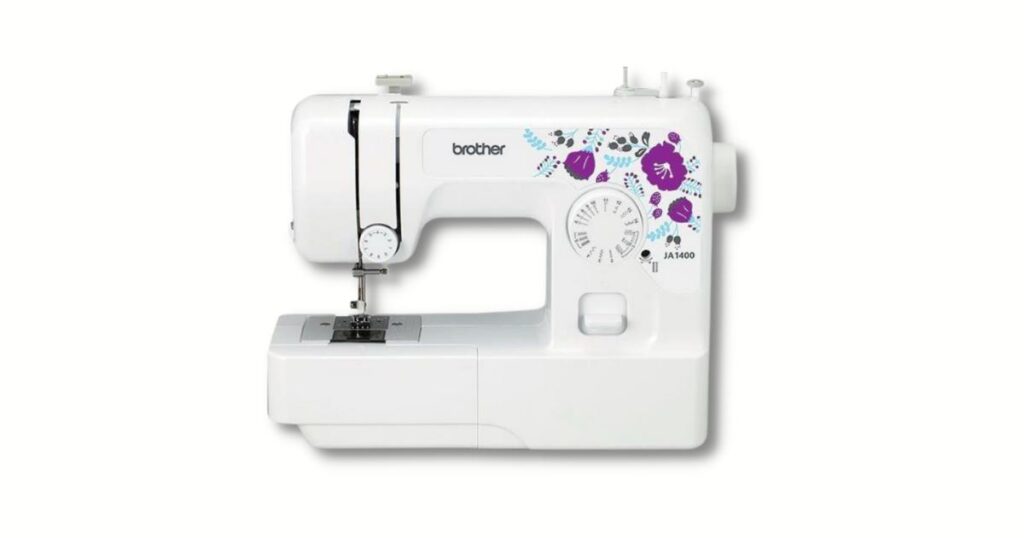
Juki
Juki is a Japanese brand that produces high-quality mechanical sewing machines. Their machines feature adjustable speeds and stitch lengths, as well as a reverse stitch function for added convenience.
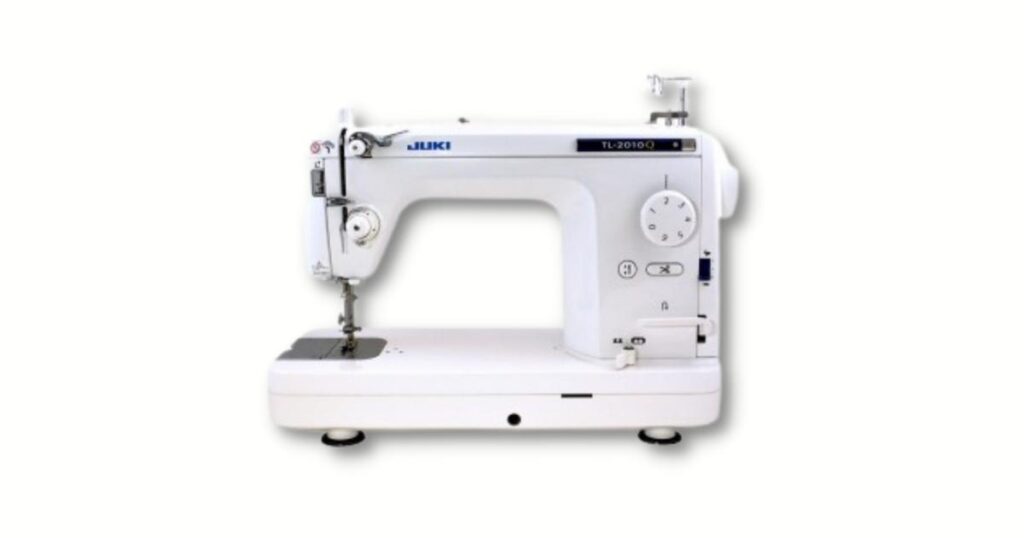
Computerized Sewing Machines
Computerized sewing machines are the most advanced type of machine available on the market today. These machines feature a wide range of functions including embroidery, quilting, and monogramming. They also typically offer adjustable stitch length and width, as well as a reverse stitch function for added convenience.
Computerized machines are usually more expensive than mechanical or electronic models, but they offer more features and functions. Additionally, they are usually compatible with a variety of presser feet and accessories, allowing you to customize your machine for different projects.
Famous Computerized Sewing Machine Brands
Bernina
Bernina is one of the most well-known brands in the sewing machine industry. Their machines are known for their quality and reliability, making them a great choice for those looking for a long-term investment.
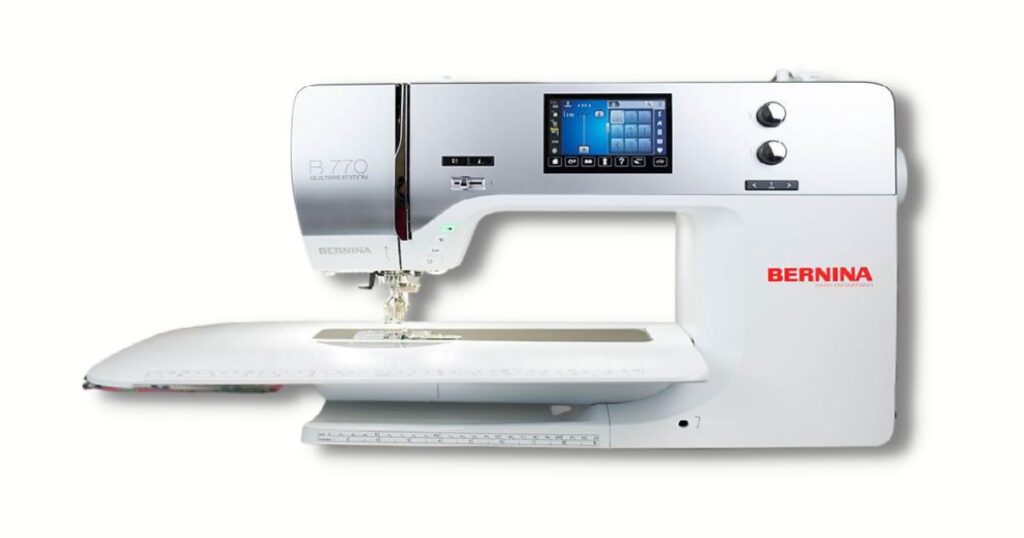
Husqvarna Viking
Husqvarna Viking offers a wide range of computerized sewing machines that are perfect for experienced sewers. Their machines feature adjustable stitch length and width, as well as a reverse stitch function for added convenience.
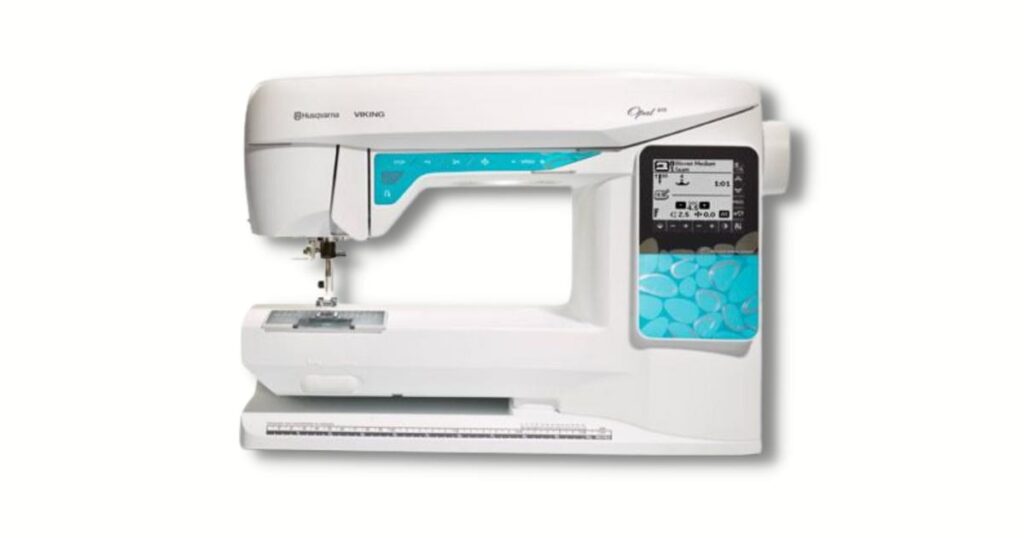
Janome
Janome is another popular brand that offers a variety of computerized sewing machines. Their machines are known for their affordability and ease of use, making them ideal for those looking to take their sewing to the next level.
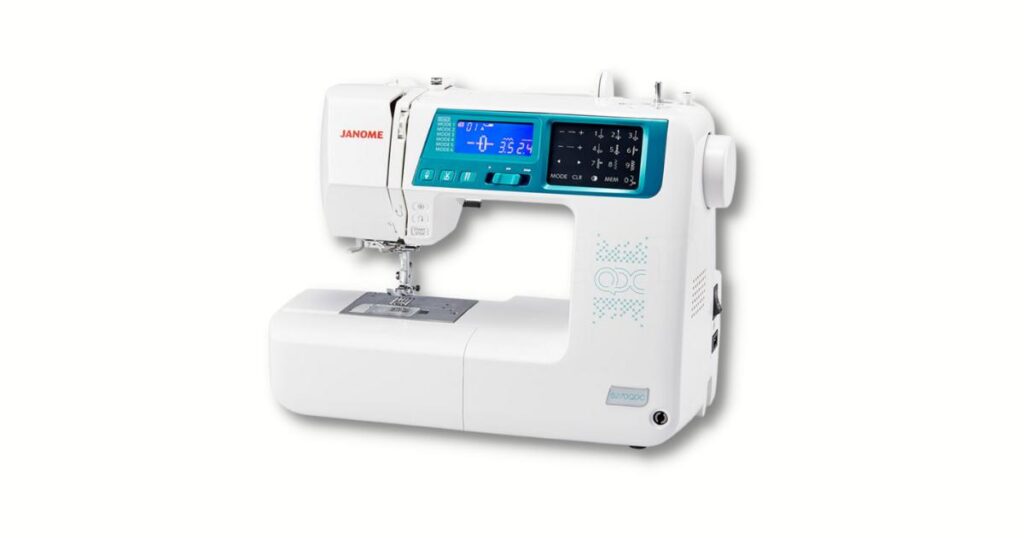
Pfaff
Pfaff is a German brand that produces high-quality computerized sewing machines. Their machines feature adjustable speeds and stitch lengths, as well as a reverse stitch function for added convenience.
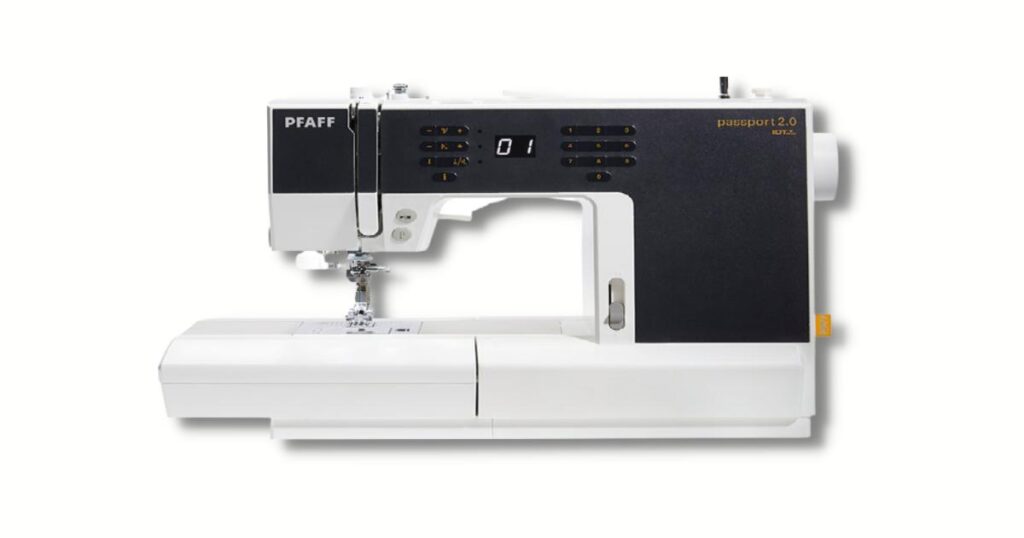
Singer
Singer is one of the most well-known brands in the sewing machine industry. Their computerized machines are known for their durability and reliability, making them a great choice for those looking for a long-term investment.
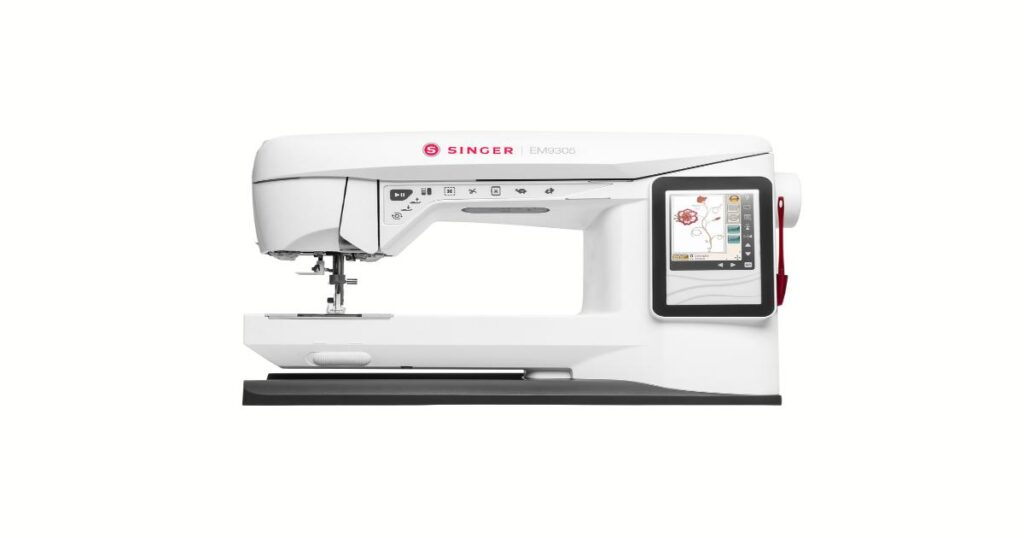
Brother
Brother is another popular brand that offers a variety of computerized sewing machines. Their machines are known for their affordability and ease of use, making them ideal for those looking to take their sewing to the next level.
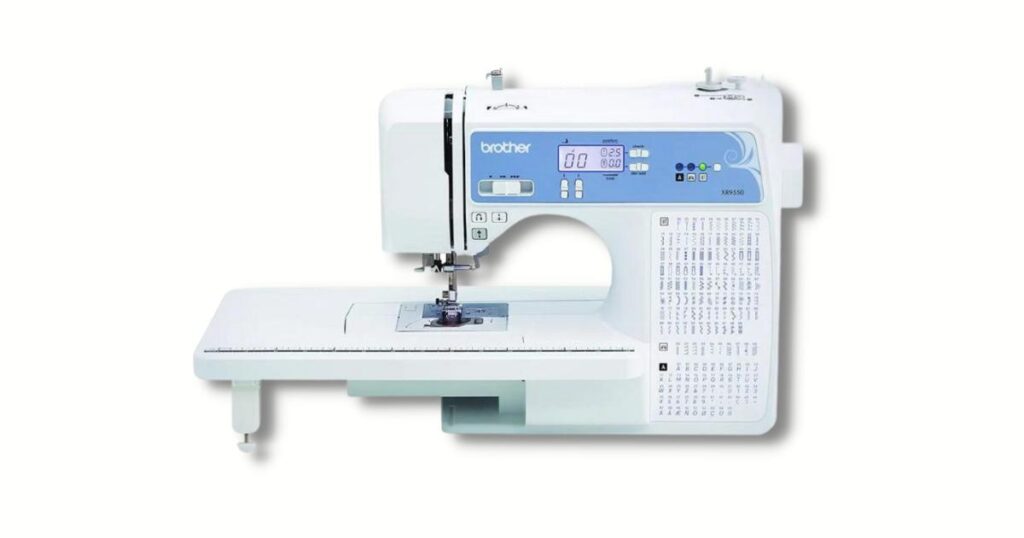
Serger/Overlock Machines
Serger/overlock machines are a great choice for those looking to take their sewing to the next level. These machines are designed to create professional-looking seams and hems, as well as decorative edges.
They feature adjustable stitch length and width, as well as a reverse stitch function for added convenience. Additionally, they can be used to create rolled hems, flatlock seams, and even ruffles.
Serger/overlock machines are also great for creating garments with stretchy fabrics, as they can easily handle the extra fabric movement. Finally, these machines are relatively easy to use and maintain, making them a great choice for those looking to take their sewing skills to the next level.
Famous Serger/Overlock Machine Brands
Janome
Janome is a Japanese brand that produces high-quality serger/overlock machines. Their machines feature adjustable stitch length and width, as well as a reverse stitch function for added convenience. Additionally, they are known for their durability and reliability, making them a great choice for those looking to invest in a long-term machine.
Brother
Brother is another popular brand that offers a variety of serger/overlock machines. Their machines are known for their affordability and ease of use, making them ideal for those looking to take their sewing to the next level.
Juki
Juki is a Japanese brand that produces high-quality serger/overlock machines. Their machines feature adjustable stitch length and width, as well as a reverse stitch function for added convenience. Additionally, they are known for their durability and reliability, making them a great choice for those looking to invest in a long-term machine.
Singer
Singer is another popular brand that offers a variety of serger/overlock machines. Their machines are known for their affordability and ease of use, making them ideal for those looking to take their sewing to the next level.
Bernina
Bernina is a Swiss brand that produces high-end serger/overlock machines. Their machines feature adjustable stitch length and width, as well as a reverse stitch function for added convenience. Additionally, they are known for their durability and reliability, making them a great choice for those looking to invest in a long-term machine.
How much you should spend on a sewing machine depends on your needs and budget. If you are just starting out, a basic mechanical or electronic model may be sufficient.
However, if you are looking for more advanced features, such as embroidery or quilting, then a computerized model may be the best option. Prices for computerized sewing machines can range from a few hundred dollars to several thousand, so it is important to do your research and find the machine that best fits your needs and budget.
Why Spend on Expensive Sewing Machines: Reasons
When it comes to sewing machines, there are many reasons why you might want to spend more on an expensive machine. High-end machines tend to be more reliable and durable, making them a great investment for those who plan on using their machine frequently.
Additionally, they often come with more features and accessories than basic models, allowing you to customize your sewing experience. Furthermore, the type of project you plan on working on can also determine the type of machine you should purchase.
If you are a beginner, a basic mechanical or electronic model may be sufficient, but if you plan on doing more complex projects such as quilting or embroidery, then a computerized model may be necessary. Finally, your experience level should also be taken into consideration when deciding how much to spend on a sewing machine.
If you are a beginner, then a basic model may be all you need, but if you are an experienced sewer, then investing in a more expensive machine may be worth the cost.
How Much Should I spend on a Sewing Machine: For Beginners
For those just starting out in the world of sewing, a basic machine is often all that is needed. These machines typically feature presser feet, automatic thread cutters, feed dogs, and other helpful features to make sewing easier. They are usually simple machines with fewer bells and whistles than more expensive models, but they can still get the job done.
These machines are great for beginners because they are usually more affordable and easier to use. They also come with helpful features such as adjustable stitch length and width, reverse stitch function, and automatic thread cutters that make sewing a breeze.
Additionally, they often come with a variety of presser feet for different types of fabrics, making them versatile enough for any project.
Overall, basic machines are great for those just starting out in the world of sewing, as they are affordable and easy to use. They also come with helpful features that make sewing easier and more enjoyable.
For those looking to take their sewing skills to the next level, a more advanced machine may be necessary. These machines usually come with additional features such as embroidery and quilting capabilities, multiple stitch patterns, and automatic thread cutters.
They are also typically more reliable and durable than basic models, making them a great investment for those who plan on using their machines frequently.
These machines can be more expensive than basic models, but they are worth the investment for those who plan on doing more complex projects.
Buying Sewing Machines Based on a Variety of Stitches
When it comes to buying a sewing machine, one of the most important factors to consider is the type of stitches it can produce. Different machines offer different types of stitches, from basic straight stitches to more complex decorative and zigzag stitches.
If you plan on working with heavier fabrics or larger projects, then you may want to invest in a machine that offers a variety of stitch options. A basic machine should include a foot pedal, zipper foot, and buttonhole foot. These are all essential for basic sewing projects.
However, if you plan on doing more complex projects such as quilting or embroidery, then you may want to invest in a machine that offers decorative stitches and zigzag stitches. These types of stitches can be used to create intricate designs and patterns on heavier fabrics.
Finally, if you plan on working with heavy fabrics or larger projects, then you may want to invest in a machine that offers more power and features. These machines are usually more expensive but they can handle heavier fabrics and larger projects with ease.
Investing in a machine that offers a variety of stitches is essential for those who plan on taking their sewing skills to the next level.
Inexpensive Sewing Machines
Inexpensive sewing machines are a great option for those just starting out in the world of sewing. Cheaper machines are usually basic models that offer basic features such as a foot pedal, zipper foot, and buttonhole foot. These machines are perfect for entry-level sewers who want to learn the basics of sewing without breaking the bank.
Mini sewing machines are another great option for those looking for an inexpensive sewing machine. These machines are usually smaller in size and offer fewer features than standard machines, but they are perfect for those who want to do basic projects such as hemming or mending. Mini sewing machines are also great for those who don’t have a lot of space in their home or apartment.
Price Range of Top Sewing Machine Brands
Write paragraphs about the Price Range of Top Sewing Machine Brands this using the keywords affordable price, price range, SInger, Jerome, Juki, Brother, and average price
When it comes to finding the best sewing machine for your needs, there are a variety of top brands to choose from. Singer, Jerome, Juki, and Brother are all popular brands that offer a wide range of machines at affordable prices.
Singer
The singer is one of the most well-known sewing machine brands and offers a variety of machines ranging from basic models to more advanced ones. Prices for Singer machines range from around $100 for basic models to upwards of $1000 for more advanced machines.
Jerome
Jerome is another popular brand that offers a wide range of sewing machines. Prices for Jerome machines range from around $200 to over $2000 depending on the features and capabilities of the machine.
Juki
is a Japanese brand that specializes in industrial-grade sewing machines. Prices for Juki machines range from around $400 to over $3000 depending on the features and capabilities of the machine.
Brother
is a popular brand that offers a variety of machines at an affordable price. Prices for Brother machines range from around $100 to upwards of $1000 depending on the features and capabilities of the machine. On average, prices for Brother machines tend to be slightly lower than those of other brands.
Conclusion
In conclusion, your budget for purchasing a sewing machine doesn’t have to be astronomical. Many high-quality, budget-friendly machines are often just as good as those that cost more. If you know what type of sewing work you’ll be doing, it can help guide your decision and eliminate some options.
Consider the features and capabilities offered by the machine and compare them to your requirements before deciding which one is right for you. With a little bit of research and planning, you should be able to find a budget-friendly sewing machine that fits all your needs.
FAQs
What is the average price for a good sewing machine?
The average price for a good sewing machine is around $200 to $1000 depending on the features and capabilities of the machine. Higher-end machines can cost upwards of $2000 or more.
Which sewing machine is best for home use?
The best sewing machine for home use depends on the type of projects you plan to do. For basic projects such as hemming and mending, a mini sewing machine is a great option. For more advanced projects, a full-size machine with more features may be necessary.
What to look for when buying a sewing machine?
When buying a sewing machine, it’s important to consider the features and capabilities of the machine. Look for machines that offer adjustable stitch length, speed control, multiple needle positions, and other features that will make your sewing projects easier.
What is the most reliable brand of sewing machine?
The most reliable brand of sewing machine depends on personal preference. Popular brands such as Singer, Jerome, Juki, and Brother all offer high-quality machines that are reliable and durable.
How much does it cost to repair a sewing machine?
The cost of repairing a sewing machine can vary depending on the type of repair needed. Minor repairs such as replacing a broken needle or cleaning the machine may cost around $50 to $100. More complex repairs such as replacing motors or circuit boards may cost upwards of $200 or more
